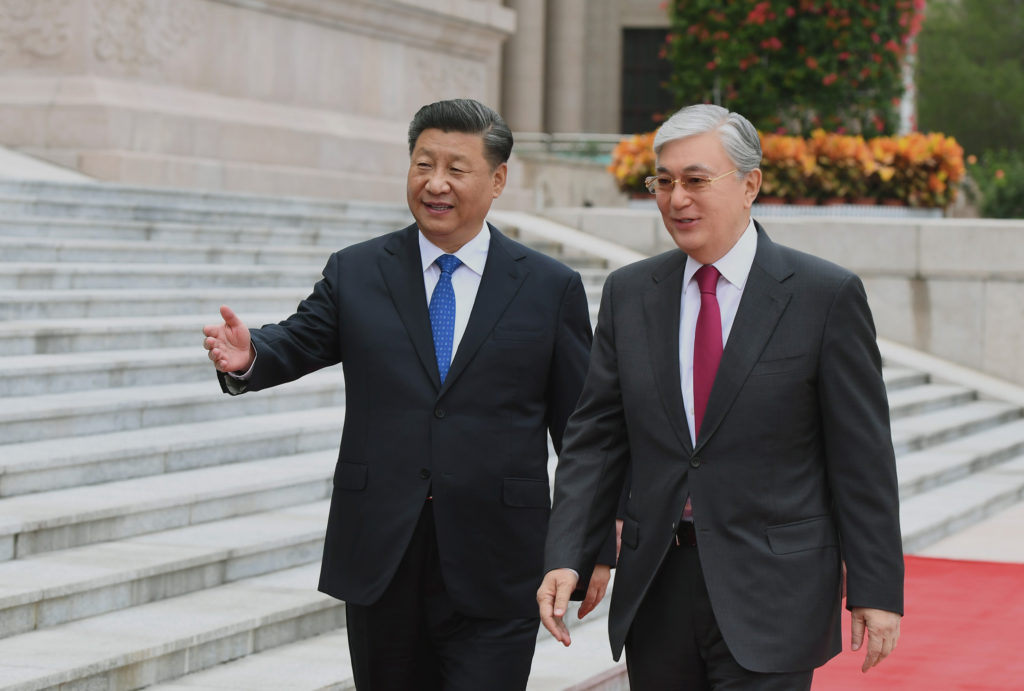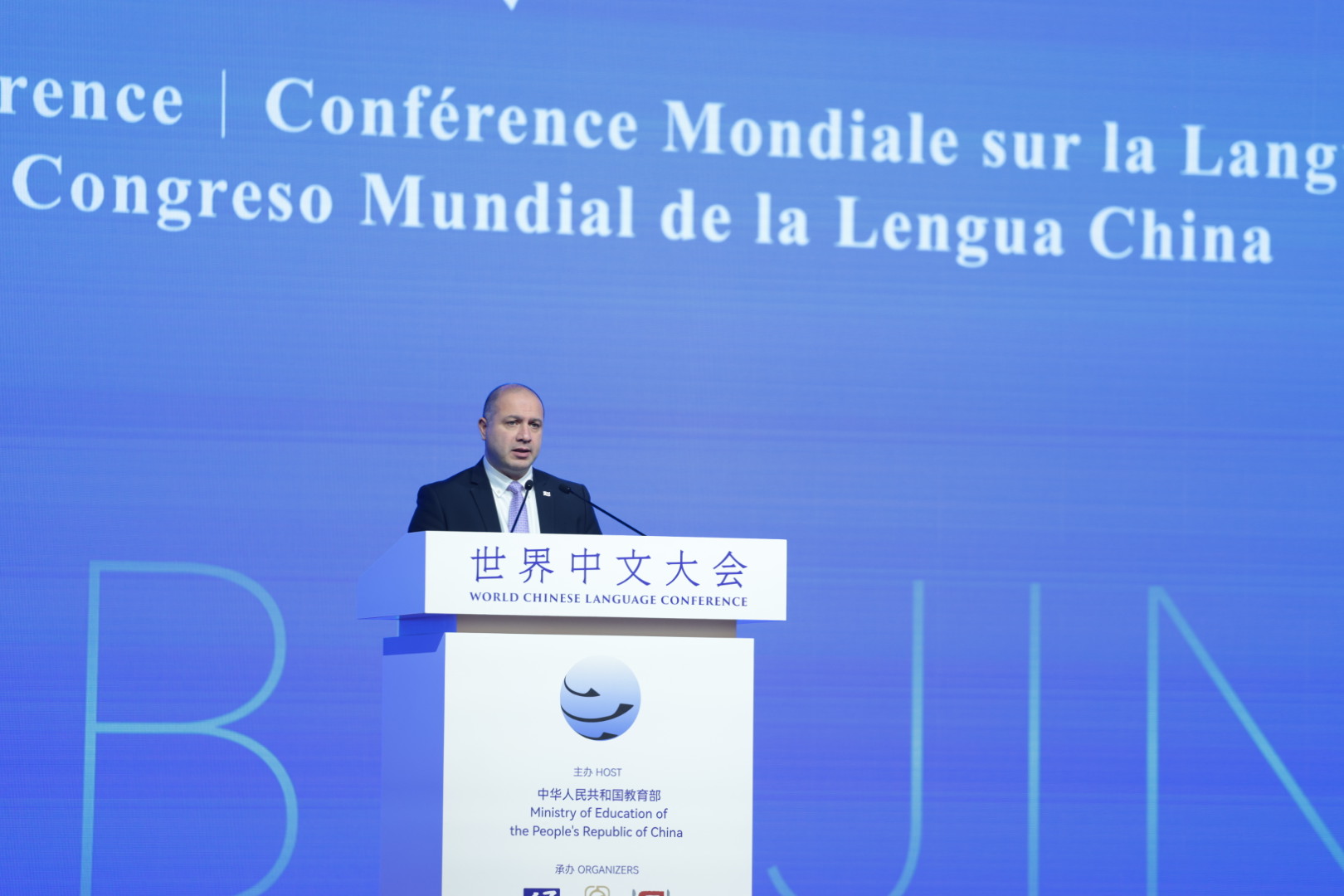
Kazakhstan Turns Toward China Amid Cooling Relations With Russia
Kazakhstan Turns Toward China Amid Cooling Relations With Russia
In late October, Kazakhstan halted the export of 106 products to Russia, a move attributed to Astana’s growing compliance with Western sanctions. Kazakhstan’s Deputy Minister of Trade and Integration Kairat Torebayev confirmed that the banned products are primarily linked to military goods, including drones, their internal components, and specialized electronics and microchips (Tengri News, October 19). President Kassym-Jomart Tokayev considers upholding the sanctions regime while balancing relations with Kazakhstan’s neighbors as paramount to the country’s economic security (Kazakhstanskaya Pravda, September 29). The recent developments illustrate Astana’s multifaceted approach to its relationship with Moscow, balancing strategic cooperation with a cautious adherence to international norms. In the wake of limiting exports to Russia, Beijing has emerged as one of Astana’s main trade partners, with agricultural exports from Kazakhstan to China doubling over the past year (The Astana Times, November 6).
Russian President Vladimir Putin’s latest visit to Kazakhstan underscored the recent cooling in bilateral relations On November 9, Putin visited Astana at Tokayev’s invitation. The two leaders celebrated reaching $27 billion in bilateral trade and over $20 billion in Russian direct investment in Kazakhstan (The Astana Times, November 9). In an unprecedented move, Tokayev chose to speak in Kazakh at a press conference with the Russian delegation, leading to the unprepared Russian officials scrambling for translation. This move can be considered Astana’s response to Moscow’s dismissive attitude toward the Kazakh language and claims that Kazakh statehood has no true historical underpinnings (Azpolitika.info, November 11). That attitude reflects a notable erosion in relations between the two countries, as seen in Kazakhstan’s efforts to divert its oil exports from Russian-dominated routes.
Kazakhstan is diversifying its use of transit routes for oil exports by purchasing additional tankers for Caspian Sea shipments (see EDM, April 25). According to Deputy Energy Minister Yerlan Akkenzhenov, the country has acquired two new tankers, each with an 8,000-ton capacity, and plans to buy two more for Black Sea transit (RBC, August 31). Kazakhstan seeks to quintuple its Caspian exports by year’s end. This will require significant adjustments as 80 percent of Kazakhstan’s oil exports currently reach the European Union and China via pipelines running through Russia. Akkenzhenov declared, “We strive to resume and increase the export of petroleum products to Kyrgyzstan, Uzbekistan, Tajikistan and Europe.” He also noted that, once the proper arrangements are made, Kazakhstan would be able to increase oil supplies to China to 6.5 million tons per year.
In recent months, Astana has expanded cooperation with Beijing (see EDM, October 3). By moving closer to China, Kazakhstan hopes to maintain regional stability, mitigate the trade fallout from the West’s sanctions on Russia, and gain additional political and economic autonomy in diversifying its regional partners.
Cooperation between Kazakhstan and China encompasses various sectors, from agriculture to energy and trade logistics.Beijing’s expanded ties with Astana enhance the strategic goals of the Belt and Road Initiative (BRI) in strengthening its westward influence. With Russia’s war against Ukraine, Kazakhstan is looking to play a larger role in energy transit and trade between Europe and Asia. Astana’s aspirations to offer alternatives to Russian-dominated routes assists China in expanding its options in Central Asia. During the first China-Central Asia Summit in May, Tokayev noted that combining the region’s transit potential with China’s massive economic power would greatly benefit all parties involved (President of the Republic of Kazakhstan, May 19).
The past several weeks have seen a number of moves toward advancing the strategic partnership between Kazakhstan and China. In October, Tokayev held talks with Wang Huning, chairman of the Chinese People’s Political Consultative Conference and close advisor to General Secretary Xi Jinping. Both officials emphasized the “high-level comprehensive strategic partnership” between the two countries and the importance of intensified cooperation as part of Beijing’s BRI (Almaty.tv, October 18). Tokayev also highlighted the signing of 30 treaties on key issues, including visa exemptions and the further development of the Trans-Caspian International Transport Route (TITR).
Enhancing transportation logistics between the two countries remains a central priority for Chinese-Kazakhstani cooperation. In 2022, bilateral trade reached a record $31 billion, with the goal to reach $40 billion in the coming years (Kz.kursiv.media, May 19). Kazakhstan has targeted increasing trade between Central Asia and China to $100 billion by 2030, with plans to develop a second border dry port and a shared regional logistics center with Beijing. These projects will play a key role in improving east-west trade, as about 85 percent of land-based transit traffic from China to Europe passes through Kazakhstan (President of the Republic of Kazakhstan, October 18). The two sides also established a third rail link to connect with the TITR. This route has grown in strategic value as a result of the West’s sanctions regime against Russia, leading Kazakhstan to call on the fellow littoral states to broaden cooperation in expanding the capacity of Caspian ports.
Kazakhstan and China are making progress on several significant infrastructure projects. These projects include the dry ports at Khorgos, Bakhty, and Kalzhat; a highway connecting Central Asia to China; and a railway route leading to Iran. Kazakhstan aims to lay 1,300 kilometers (800 miles) of new railway lines over the next three years. The two countries also plan to jointly produce shipping containers to support increased use of trans-Caspian transit routes (Almaty.tv, October 18). Kazakhstan plans to increase oil exports to China by expanding the capacity of the Kazakhstan-China oil pipeline through upgrading the Atyrau-Kenkiyak and Kenkiyak-Kumkol sections. Additionally, Astana aims to double the output of the Shymkent oil refinery to 12 million tons per year and build a new gas processing plant at the Kashagan oil field with a planned capacity of 4 billion cubic meters annually. Chinese investments are expected to play a central role in facilitating the realization of these endeavors (President of the Republic of Kazakhstan, May 19).
Kazakhstan is engaged in a strategic rebalancing act, distancing itself from Russia while fostering closer ties with China. Astana’s suspension of military-related exports to Russia, diversification of transit routes, and growing support for China’s global initiatives undergird this shift. Kazakhstan has begun to assert itself more as a pivotal transit and trade hub for good passing from China to Europe. For now, the Chinese market provides more stable trade and investment opportunities, offering Kazakhstan the necessary support to achieve its infrastructure and developmental goals.


